7 medical reasons you may be feeling tired
In our ‘always on’ hyper busy world, it’s not surprising that we experience bouts of tiredness and burnout. With more of us working from home and suffering with a lack of clear boundaries between home and work life, many of us report finding it harder to rest, relax and shut off at the end of the day.
While this feeling of exhaustion can feel quite debilitating, it usually passes if you’re able to take a break or lighten your workload. But if this sense of exhaustion persists, and there doesn’t seem to be a logical explanation, it could be worth taking a closer look at your health to understand whether there’s another underlying cause.
What is fatigue?
Fatigue is a term used to describe a feeling of tiredness or low energy. Unlike simply feeling sleepy which can be a symptom, fatigue is often much more prolonged and includes a general lack of motivation.
Fatigue can be caused by lifestyle choices such as poor diet or a lack of exercise, or from psychological conditions such as depression. There are also a variety of medical conditions which can cause fatigue, such as:
Anaemia
Anaemia happens when you do not have enough red blood cells needed to transport iron and haemoglobin through the bloodstream to your organs. Being anaemic can mean that you feel more tired or cold than usual. You might also notice your skin seems too pale because your organs not receiving the oxygen they need.
Lyme disease
Lyme disease is transmitted by the bite of an infected tick and is more likely to happen if you live or spend time in grassy or heavily wooded areas. Lyme disease symptoms include fever, chills, fatigue, body aches, headache, neck stiffness and swollen lymph nodes, as well as a rash.
Epstein Barr Virus
Epstein-Barr virus (EBV) is a member of the herpes virus family and is one of the most common human viruses. EBV commonly spreads through bodily fluids, primarily saliva and can cause infectious mononucleosis (mono), and other illnesses.
People who get symptoms from EBV infection, generally teenagers or adults, tend to recover within two to four weeks. However, some people experience fatigue for several weeks or months. After a person gets an EBV infection, the virus becomes inactive in the body. But in some cases, the virus can reactivate. While this does not always cause symptoms, for people with weakened immune systems, symptoms can develop.
Chronic Kidney disease
If your kidneys are not working well, toxins can build up in your blood and this can make you feel tired and weak. Kidney damage can also lead to a shortage of red blood cells, causing you to be anaemic. If anaemia is not treated, it can result in you feeling more tired than usual and lacking in energy.
Liver failure
The liver is an essential organ, performing hundreds of necessary functions. It's also a gland because it makes proteins and hormones that other parts of the body need. Many people with advanced liver disease feel very tired and have low energy levels. This can be due to the medical condition, external stresses or a combination of the two.
Underactive thyroid
An underactive thyroid gland means you have too little thyroid hormone (thyroxine) in the body. A key symptom of this can be fatigue, as well as weight gain, aching muscles and dry skin. It's most common in women and happens more often as you get older.
Diabetes
Diabetes is a chronic health condition that affects how your body turns food into energy. Most of the food you eat is broken down into sugar (glucose) and released into your bloodstream. When your blood sugar rises, it tells your pancreas to release insulin, but this process can be interrupted, leading to complications that cause diabetes. One of the main symptoms of both type 1 and type 2 diabetes is feeling very tired.
Getting to the bottom of your fatigue
Fatigue is a symptom of many different illnesses, and it can be frustrating trying to work out the cause. Blood testing can help you get to the root cause of the issue, giving you the information you need to get the right treatment or make changes to your lifestyle, in order to feel better.
Private blood testing in London
We make sure the experience of getting a private blood test in London is as easy, convenient, and painless as possible. Here’s how it works:
As well as tests for conditions which cause fatigue we have a comprehensive range of health checks and diagnostic blood tests available, including male and female hormone profiles.
After you have selected the right test for you, simply order online through our secure payment system or chat to a member of our team. Once your order is placed, you can visit our central walk-in centre on the same day to have your blood sample collected by one of our trained phlebotomists.
The time it takes to receive your results will depend on the type of test you have chosen. When they are ready, your results will be sent directly to you, via email, within the time specified. If you would prefer to receive a paper copy of your results through the post, that can easily be arranged for you.









